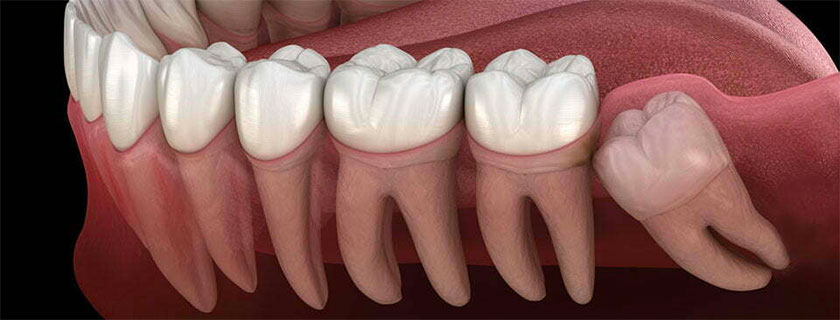
Teeth that have not been able to develop in the mouth and remain under the gum and bone are called impacted teeth. Small molars, canines, and wisdom teeth may remain under the gums or bones, and may be an impacted tooth.
Impacted tooth problem occurs in wisdom teeth, but there is always the possibility that non-wisdom teeth can remain impacted.
FAQ
What are the symptoms of impacted teeth?
The fact that the teeth in the mouth are already taking up too much space and the wisdom tooth cannot find a place to position itself is one of the main reasons for the impacted tooth problem.
- Pain in the jaw joint and bone
- Tenderness and pain in teeth and gums
- Bad breath due to decay
- Pain while chewing
- Headache
- swelling in the lymph nodes
How long does it take to remove the impacted tooth?
While the impacted tooth is extracted, the relevant area is anesthetized and a surgical procedure is applied. Since it cannot fully complete the development and remains in the jawbone, it must be removed by operation. After tooth extraction, dissolving stitches or stitching methods that need to be removed later are applied, and the healing period of impacted tooth extraction is started. The average recovery period is between 7 and 10 days.
If deemed appropriate according to the patient’s recovery, antibiotic or painkiller treatment is recommended by the maxillofacial surgeon.
Removal of impacted teeth at a young age is preferably more common. Young ages, where there is no acute infection and the healing process is faster than the advanced age, are suitable for impacted teeth treatment.
What should be considered after impacted tooth extraction?
- Oral and dental hygiene should be given importance
- You should eat with the other side within the first 24 hours after the impacted tooth extraction.
- After the impacted tooth operation, nothing should be eaten or drunk within the first 2 hours. In the period after 2 hours, only soft foods, preferably liquid-based meals should be consumed.
- Extremely hard and sticky foods should not be consumed.
- No smoking for 24 hours.
- If a cold compress is recommended, it should be applied regularly.
- In the first two days, it is normal to have bleeding in the form of small leaks. However, in case of severe bleeding, the dentist should be contacted.
- The use of blood thinners is not recommended.